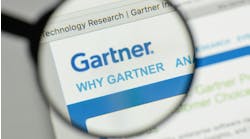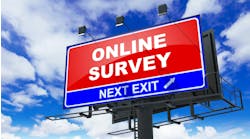It’s time: Industrial automation professionals need connected digital solutions
Schneider Electric's Mary Derrick
Manufacturers are facing mounting pressure from both customers and governments to become more agile and sustainable. At the same time, the Industrial Internet of Things (IIoT) is driving the next stage of industry, delivering a new phase in the industrial revolution focused on interconnectivity and smart digital technology that benefits the end-to-end industrial ecosystem.
Fortunately, these innovations are also leading to the creation of new digital tools for contractors, system integrators, distributors, and facility managers to maintain systems, improve sustainability efforts, and optimize the construction lifecycle. Energy-management professionals need access to digital platforms that provide simplified and customized insights into their work. These platforms hold tremendous benefits for improving productivity, uncovering new strategies and techniques to lower energy consumption, and managing multiple complex projects at once with minimal downtime. Implementing digital platforms can assist not only our partners, but drive business efficiency on a larger scale.
It should come as no surprise that a recent report by the Information Technology and Innovation Foundation found that focusing infrastructure investments in digital technologies will lead to new job opportunities, environmental benefits and longer-lasting economic growth. These investments are vital for bigger-picture infrastructure improvements, but also trickle down to the level of daily functionality.
The challenge is that many of the rising digital solutions are single-point or closed solutions that don’t integrate with professionals’ other core capabilities (such as procurement, design, or project management). That means it’s not enough to rely on a grab bag of various disconnected third-party digital services. If businesses want to fully capture the benefits of digital investments, they need to provide the contractors, system integrators and facilities-management teams helping drive this transformation with an integrated platform that enables them to manage all work and resources in one easy-to-access ecosystem.
All of your data together
The shift toward smart devices and digital operations and services means that businesses are now generating and have access to mountains of valuable data. This can include real-time information on the status of projects to determine resource allocations, analyzing energy consumption to monitor for areas of environmental impact improvements or visualizing a customer’s full service history to better understand what kind of products are within their price range and are tailored to their specific needs.
By consolidating this data into one centralized platform, more valuable insights are readily accessible to any user that may need them. We must break down the prevalence of today’s data silos to pursue fully integrated data solutions.
Unifying communications and business updates
Access to a unified digital platform can also be incredibly important for internal communications, improving the speed and agility of users’ responses to any updates or actions requiring their attention. As an example, with the uncertainty that still faces industry due to COVID and newly forming variants, businesses and independent contractors need a quick way to communicate priorities and safety measures with employees and partners. Whether it’s bringing disciplines together at the design stage, collaborating at the project management stage, or maintaining a building’s energy-reduction plan, we need more unified communication platforms.
Instant support for the value chain
One of the key drivers behind digitalization efforts is the availability for support and resources accessible with just a few clicks on a device. Digital platforms can provide 24/7 access to customer support and technical documentation, as well as training and curriculums to ensure users have the latest information on products, techniques, or local environmental regulations for top-quality service. Just as importantly, these insights and resources can be customized depending on a person’s role or location, so users don’t have to run through mountains of information to find the specific data or support they need.
Intelligent platforms can deliver customized dashboards, personalized notifications, and tailored resources for a digital experience that streamlines operations and drives business growth.
Simplifying project financials and billing
Booking and tracking various jobs can get confusing and overwhelming when so many factors are at play. It’s important to have all financial information and dues in one place to ensure compliance, but it’s even more important to tie procurement and bidding tools together with financial systems. Maintaining all records in one place not only improves efficiency, it also cuts down time for processes related to creating a quote on costs, ordering specific products or services, and managing invoices without needing to jump between multiple billing platforms.
What will the future of industrial digital platforms entail?
As Industry 4.0 and new sustainability initiatives pave the way for a more integrated, digital future, the demand for connected digital platforms will continue to grow. As just one example, Schneider Electric recently announced its new mySchneider offering, an all-in-one digital experience that provides personalized business services, content, and tools to augment business operations and drive business growth. The mySchneider experience is interoperable, allowing partner and customers to easily integrate it into existing systems to further enhance operational efficiency.
The manual or siloed methods that have traditionally dominated the industrial sector are out-of-date and can no longer keep pace with the rapid trend towards digitalization. Instead, unified and simplified digital platforms will become a necessity for industries looking to capitalize on new opportunities, and for providing workforces transitioning to digital industry the resources they need to succeed.
Mary Derrick is vice president of channel strategy and digital enablement at Schneider Electric




